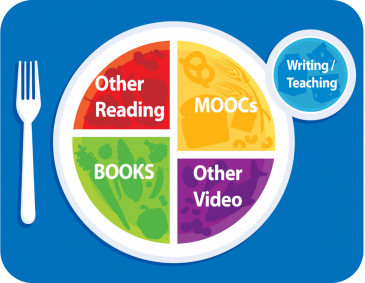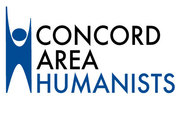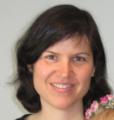Posted on January 19, 2016 by Maria

On January 6, 2016, I gave a talk for the Concord Area Humanists titled "Lifelong Learning (for Free) Using the Internet", and I promised to publish links to the resources mentioned in the talk and a link to the slides. (Unfortunately, I did not arrange to have the talk videotaped.) I hope you found the topic interesting and find some of these resources valuable as you indulge your own intellectual curiosity.
Note that the image to the right is my idea of "The Healthy Learning Plate", with apologies to the Harvard School of Public Health, whose "Healthy Eating Plate" was the inspiration.
Resources mentioned in the presentation
Workflowy, http://workflowy.com
This resource isn't for learning, per se, it's for organizing your learning. As an "Autonomous Learner" or "Autodidact", you must decide on your own educational goals and chart the path to get there. A tool like Workflowy makes that easier and more fun.
Workflowy is an outline editor that is gloriously simple but incredibly powerful for organizing your notes, your tasks, or an infinite number of other things in your life. Their slogan is "organize your brain". The ability to expand only select lists of the outline make it easy to keep as much detail as needed but to ignore other details except for the topic that you are currently working on. Lightning quick searching and flexible tagging add ease and power for dealing with your lists as they grow.
Find your local library's website, http://mblc.state.ma.us/libraries/networks/
This directory will help you find the website of your town's public library, which will then connect you with its on-line catalog which will give you access to all the books in your library's network through interlibrary loan or through the ability to check out ebooks on your computer, smartphone, or e-reading device.
Project Gutenberg, https://www.gutenberg.org
Free ebooks and audio books of works that have entered the public domain.
Goodreads, http://goodreads.com
I can't say enough good things about Goodreads! As I said in the presentation, books are my main course -- the entrée of my education. I use Goodreads in a myriad ways. Primarily I use it as my "to-read" list. I use it to help me find used books I can't find in my library network. I create my own shelves to organize my books the way I need (by topic, by where I got them, by course they're associated with, etc.), and I put books on as many virtual shelves as appropriate. I use it to keep track of when I start and when I finish books. I use it to write a short review after I finish the book. (After I finish my review so as not to be unduly biased) I use it to read other people's reviews to gain their insights and perspectives.
Google Books, http://books.google.com
As Google says, "Search the world's most comprehensive index of full-text books." You can search the content of millions of books by keyword and then use the results to guide you to an on-line or print copy of the book. The search results give you a summary (when available), excerpts around your search terms, all of the catalog data, related books, and much more.
Class Central, http://class-central.com
Class Central is to Massive Online Open Courses (MOOCs) what Goodreads is to books. Their tagline is "Never Stop Learning" and that would have been a better name for this talk as well! Use this site to find courses to take by subject, by institution, by provider platform, by start date, by recommendation, and more. They aggregate the information about MOOCs so you don't have to search the catalogs of each of the providers, such as Coursera, Udacity, EdX, separately. Use it to keep track of MOOCs you want to take (and have it remind you when the class is about to start), MOOCs you've taken, to learn about other people's experiences taking particular MOOCs, and to share yours. Their MOOC Report blog is also the best overview of the MOOC industry around.
The Great Courses from The Learning Company, http://thegreatcourses.com
This company (started in 1990) offers courses similar to MOOCs but a) they're not free, and b) they're usually just the lecture (plus readings in a booklet), and sometimes reading list part. You can often pick up CD/DVDs of Great Courses courses at your local library. They have frequent sales, and they do offer on-line streaming for most courses. On average, I'd say TGC has better professors and higher production values.
TED, http://ted.com
TED stands for Technology, Education, and Design, and it is a series of short talks about "Ideas Worth Spreading". TED talks are a great way to explore an idea in a much shorter time-frame than a MOOC.
YouTube, http://youtube.com
If you're willing to wade through the dross, there are many YouTube channels that are wildly educational. One of my favorites is Vi Hart who has amazing videos about music and mathematics. My kids love and recommend John Greene's Crash Course. My husband searched, "How to replace car break pads", and watched several videos before proceeding with some car repair. Anything you want to learn, there's likely a YouTube video showing you how (the trick is finding the good ones).
Lynda.com, http://lynda.com
Paid, short, on-line courses on all sorts of topics, primarily computer and business related. Less academic, more practical than MOOCs or The Great Courses.
Craftsy, http://craftsy.com
Paid, short, on-line classes on craft skills. Who says on-line learning has to be about intellectual stuff?!
The Prezi Presentation
Here is the presentation from the talk. Click on it to start the presentation, then use the arrow buttons at the bottom of the screen to walk through it. You can use the full screen link to make it larger if you'd like.References to Articles Cited in the Presentation
United States Department of Labor, Bureau of Labor Statistics, Consumer Price Index (CPI) Inflation Calculator
Steve Odland (2012): College Costs Out Of Control, Forbes Magazine, March 24, 2012
Kyung Hee Kim (2011): The Creativity Crisis: The Decrease in Creative Thinking Scores on the Torrance Tests of Creative Thinking, Creativity Research Journal, 23:4, 285-295
Harvard School of Public Health, The Healthy Eating Plate
Joris Schut, 3 Reasons Why MOOC Completion Rates Are So Low (...and Why this Is OK), EDUKWEST.com, March 4, 2015


1 Comments
Thank you Maria. This is a great resource for resources.
Add your comment